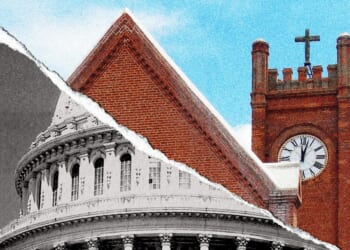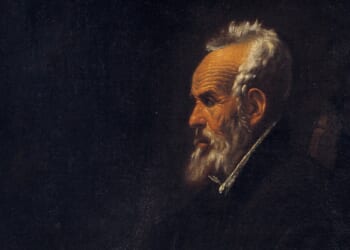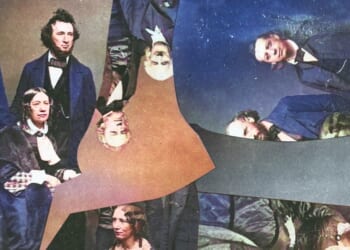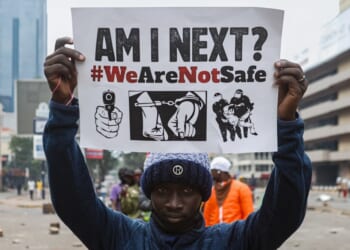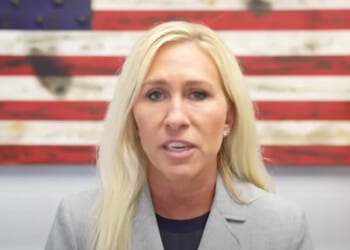For most of my adolescence in Tennessee, I dodged God because of my pain.
I attended Sunday services at my mother’s insistence and similarly dragged myself to daily chapel services at my Christian school. I sang old hymns and recited wordy prayers, without ears to hear the truth behind the liturgy.
My truth, at the time, was that I knew no loving father, earthly or otherwise—and I told myself I was okay with that. At age 12, I saw this repressed longing permanently denied by my father’s sudden death. Somewhere in my grief, I made a subconscious vow to require no affection from any man, ever.
My early conceptions of gender were also twisted by a same-sex molestation. We were both ten years old. My molester had no inkling of the devastating trauma she was inflicting; on the contrary, she gleefully whispered that she had learned “this” from her best friend. Ignorant to the legitimacy of child-on-child sexual abuse, I spent years joking and even bragging about it, costuming my brokenness as edginess.
When I first “came out” to a few friends in sixth grade, I expressed being sexually attracted to boys but emotionally attracted to girls. Translation: I desired boys but felt safe with girls. While my male crushes included strangers and celebrities, each female crush began with a close friendship. And interestingly, all of the girls were white. After a decade of therapy, I now see that what passed for sexual attraction was actually a desperate hunt for affirmation.
In seventh grade, one of these wound-fueled crushes led me to voluntarily attend a weekend youth conference in the Georgia mountains. There, during solo prayer time, I perceived the presence of God for the first time. I was moved by the encounter, but I also knew that I liked girls. Lacking any holistic understanding of temptation, sin, or sanctification, I simply decided that I would be straight.
Of course, this white-knuckle attempt failed miserably, and its failure fueled the misshapen identity I soon embraced. With the aid of the internet, increasingly progressive television, and other “out” peers, I concluded that my desires were immutable, central to my being, and most definitely everyone else’s business. Armed with the truth of my failed repression, I loudly and angrily dismissed anyone who challenged my newfound beliefs, including my mother.
Sadly, my worst encounters were with my Christian peers. The whispers and snide comments haunted me, and I eventually concluded that the Christian God was not for me. I graduated high school as an indifferent agnostic and fled to Bowdoin College, a small liberal arts school in Maine.
Within a couple weeks, I had exchanged the role of a pariah for that of a luminary. I was hired as student director of the Sexuality, Women, and Gender Center and became responsible for planning community-building events. In addition to taking on this paid job, I became president of the school’s queer-straight alliance. I moderated group discussions, planned “quarties” (queer parties), and dictated invites. I also defended my various ideologies in a biweekly newspaper column.
By the spring semester of my sophomore year, I was thriving. I was popular, getting straight A’s, and generally happy. When I secured a summer internship at the Innocence Project, a national nonprofit that works to free the wrongfully convicted, I was thrilled. Little did I know that this grand summer plan had been orchestrated by God.
I spent the first half of summer at Bowdoin, researching racial injustice by day and partying at night. But one night, after years of same-sex intimacy, I had a puzzling mid-hookup realization: I did not want to be doing this. As the days and weeks passed, the disdain remained. This shift was not so much a sudden transformation as a revelation: Perhaps I was not who I said I was.
God made his next move through my research. On one of many nights spent scouring academic journals, I encountered a reference to Revelation. My academic training trumped my religious biases, and I turned by way of Google to the original source. That night, for the first time in my life, I read the Bible on my own.
In the text’s description of cosmic war, I saw our earthly conflict. This was the summer of 2016, of the back-to-back televised police killings of Alton Sterling and Philando Castile. Each slaughter was shockingly brutal, as was the political aftermath. With this heavy on my mind, I was moved by Revelation 19’s vision of a supernatural rider removing peace from the earth.
For days afterward, I hunched over my laptop, hungrily consuming Scripture. Despite my many doubts about the text, I was fascinated by its claims.
Then God began gently and lovingly chipping away at my doubts.
While walking to lunch after a rough research morning, I turned to my friend and said, “Hopefully lunch will at least be good.”
Bowdoin dining is continually ranked among the best dining halls in the States and is known for its organic garden, whole foods, and commitment to sustainability. That afternoon, they served my three favorites: chicken wings, macaroni and cheese, and Caesar salad. Bear with me—chicken wings were served maybe once per semester and certainly never in the summer. I also never saw the three featured together, not before that lunch or ever again.
A second inexplicable moment came later that day. As soon as I entered my dorm room that evening, the palpable presence of God engulfed me. My lunch of favorites immediately came to mind, and in that holy moment, the Lord proved that he knew me, loved me, and desired the same from me in return. He was not a distant, disgusted naysayer like some of my Christian peers. On the contrary, the distance had been my choice, and God was declaring war upon it.
Midway through the summer, I moved to New York to begin my work at the Innocence Project’s headquarters. By way of God’s sovereignty, I stayed in the home of a family friend who happened to be a minister. When I mentioned I had been reading Scripture online, she brought me multiple print translations.
Each week, she invited me to her church, and each week, I declined. I knew God was real, but I was still bound to my anti-Christian biases. But as I made my way through the Book of Matthew, my excuses began to falter. I began to see the difference between the rotten fruit of gossiping Christians and the patient loving-kindness of the biblical God.
On my last Sunday in New York, I finally agreed to attend church.
The sermon centered on Jesus’ parable of the lost sheep—the shepherd leaving the ninety-nine of his flock to pursue the wayward one. At the end of the pastor’s sermon, he made an announcement that changed my life: “God is telling me that there is a lost sheep in this room.”
I immediately grew hot from head to toe. I sat as still as possible, willing my body to remain calm. “I know you’re here,” the pastor continued. “Please come to the front.”
I sat. We all sat. I expected the moment to pass, but the pastor pressed on: “We’ll wait.”
As the silence dragged on, a sense of impending exposure came over me. It was not fear so much as an awareness that God was running this show and that this was my scripted turning point. Like a new kid at school introduced against her will, I had been called by name.
Some might say that what happened next was a result of the Spirit falling upon me. Others would say I surrendered. But by what I can only describe as a mysterious disconnect between my head, heart, and legs, I stood up.
With tears welling in my eyes, I walked out of the aisle and toward the front of the room. Before I knew it, I was standing below the pulpit, sobbing and shaking, overcome with the weight of the truth: The Savior I had been evading was the one who loved me most. My spiritual jig was up, and my old life was over.
With the same logic-defying dedication with which the shepherd pursues the single, irreplaceable sheep, the Lord grasped my rebellious hand and led me back to the flock. And this wayward sheep, now found, was boldly celebrated by the Shepherd for all to see.
Although I was eager to share the story of my conversion, I spent months avoiding questions about whether and how my sexual ethics had changed. I downplayed the obvious shifts in my late-night activities and made vague statements when I resigned from both the center for sexual diversity and the queer-straight alliance.
I joined the Christian club and began attending an off-campus Baptist church, but I tried my best to retain all my friendships. I was fully honest with some and indirect with others, and I gradually drifted apart from most.
Though the truth of God’s Word surprised me, my new convictions were unshakeable. The pre-conversion collapse of my bisexual identity had freed me to behold the beauty of God’s design for sexuality without itching ears. But I knew how conservative I sounded, and I was terrified.
When I addressed my conversion in my newspaper column, I forwent a detailed narrative in favor of a poetic essay filled with cryptic references to sin and darkness. Soon after, I felt the Holy Spirit whisper to me, You know you’ll eventually have to tell this story. It was not a question or a command; it was just plain truth that came in peace.
As the months and years passed, my awareness of this truth only grew. I graduated, left for a new job in a new city, and continually encountered people (gay, straight, and otherwise) who needed a story like mine.
God has used this story to encourage some and challenge others. Each time I share it, especially amid pushback, the Lord exorcises my heart of its fear and pride.
In reference to Satan the accuser, the Word tells us that the people of God “triumphed over him by the blood of the Lamb and by the word of their testimony; they did not love their lives so much as to shrink from death” (Rev. 12:11). Testimonies like mine are evidence of God’s limitless power to liberate. They are also a warning against the futile, poisoned offers of this dying world.
To be clear, the crux of my story is not a shift from bisexual to straight. What God has done is much more wondrous: He has replaced my confused and grasping blindness with sight and given me the unmoving conviction of who he says I am.
This is the sort of story I wish my younger self had heard: a tale of freedom found not through human effort and resistance, but by the gracious Shepherd’s relentless pursuit.
Adira Polite is producer and host of the Then God Moved podcast, which spotlights Christian stories from around the world.
The post Coming Out Christian appeared first on Christianity Today.




